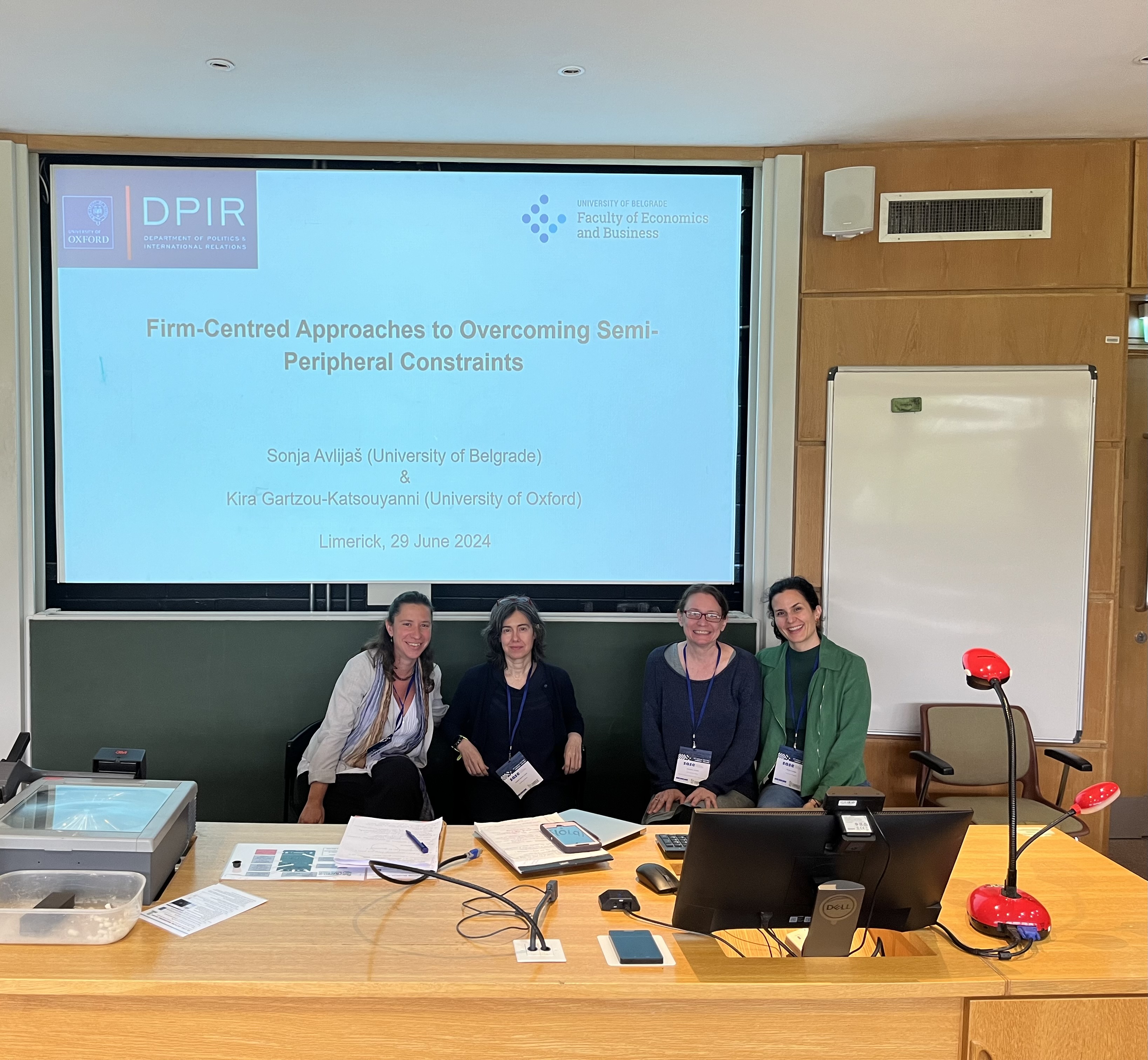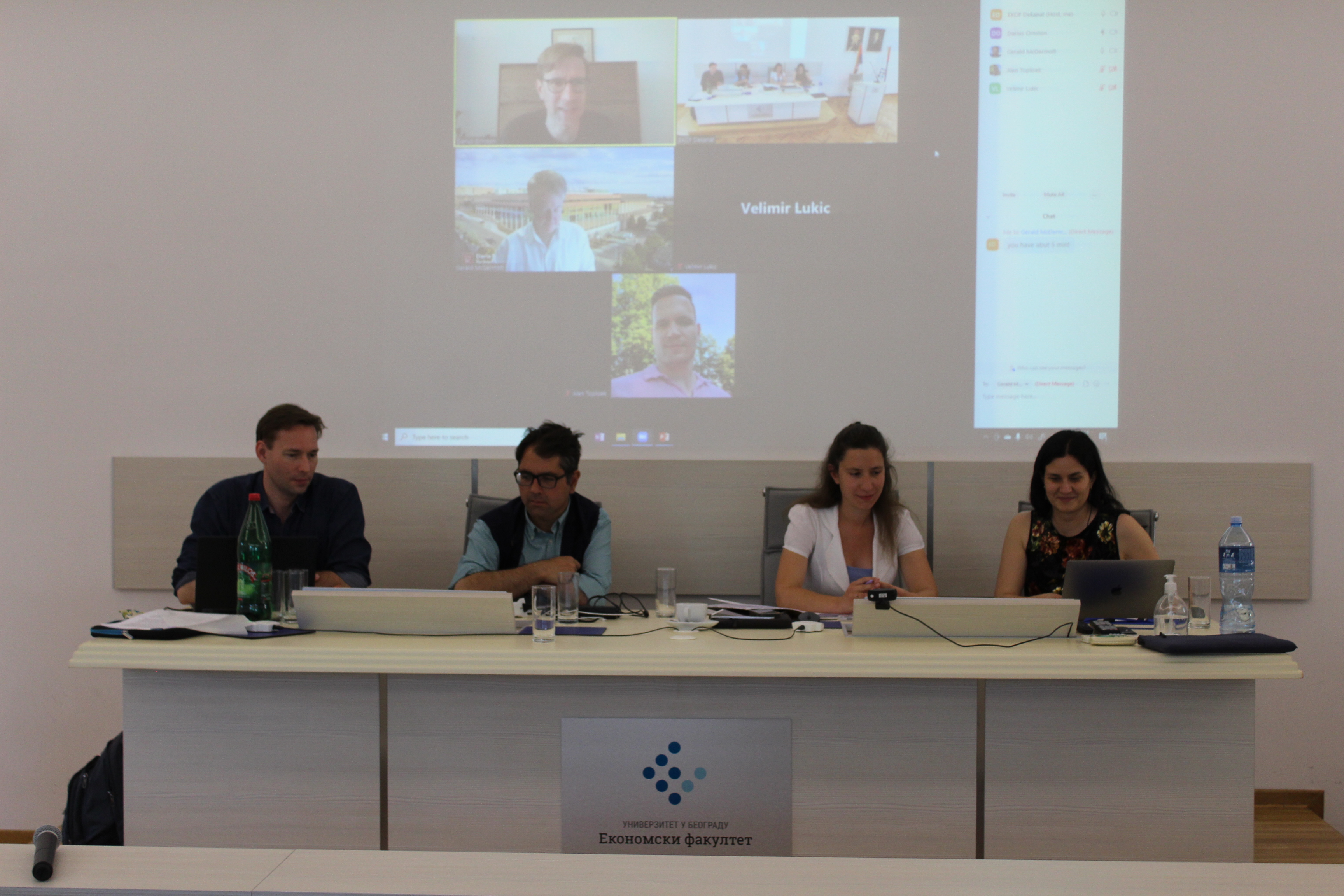The political economy of local development in the semi-periphery
This collaborative project aims to improve our understanding of developmental trajectories in semi-peripheral areas, challenging the stark North-South divide in the political economy and international development literatures.
About
Firms in semi-peripheral areas, which do not belong to the global core or to the periphery in terms of their production and trade profiles, can be important developmental agents as they seek creative ways to avoid being trapped by both market and government failures. Shifting to more innovative, higher value-added segments of the global market is challenging in semi-peripheral contexts characterized by low trust, social fragmentation, and path dependencies of old development models. Firms outside the core are also limited at the international level, by regulatory and financial constraints and by the dominant role of large multinational companies in the global value chains governing the production of a range of sophisticated goods.
Scholars are increasingly advocating a strong, activist developmental state as a way of overcoming those internal and external constraints that domestic firms face. These solutions, however, often fail to acknowledge that government failure is as common in semi-peripheral areas as market failure. It is unlikely that public authorities in the semi-periphery can successfully play the developmental role often requested of them in the literature. Doing so would require them to act as a deus ex machina for economic development, whereas in reality, they often have weak political capacity to improve existing institutions or build new ones. This weakness reflects the fragmentation of potential support coalitions, limitations in resources, as well as problems of capture by rent-seeking groups.
We are interested in empirical cases where domestic firms engage with these multiple constraining features of the semi-periphery and develop strategies to overcome them. Under which conditions have such local actors been able to carve out opportunities for developing innovative capabilities despite the developmental constraints associated with semi-peripherality? Which macro-level policies have facilitated their endeavors, and what kinds of coalitions succeed in promoting them at the national and international levels, despite adverse circumstances? By focusing on these puzzles in concrete empirical settings, the goal of this project is to examine dynamic pro-developmental strategies that allow firms to overcome obstacles and capitalize on opportunities observed in semi-peripheral contexts.
New Special Issue
In the framework of this project, Sonja Avlijaš co-edited a Special Issue on “Firm-centred, multi-level approaches to overcoming semi-peripheral constraints”, which was recently published by Studies in Comparative International Development (SCID). The Special Issue includes the following contributions:
Sonja Avlijaš and Kira Gartzou-Katsouyanni, “Firm-Centered Approaches to Overcoming Semi-Peripheral Constraints”
Alessandra Cicci and Darius Ornston, “Semi-Peripheral Pathways to High-Technology Markets: How Organizational Origins Shape Entrepreneurial Ecosystems”
Angela Garcia Calvo, “Production Networks and Innovation in the Semi-periphery: The Transition to Electric Vehicles in South Korea and Spain”
Gerald A. McDermott and Belem Avendaño Ruiz, “Regulating to Exclude or to Enable: Institution Building and Transnational Standard Adoption in Mexican Food Safety”
Gergő Medve-Bálint, “From Rust to High-Tech Hubs: FDI-Led Upgrading of Urban Economies in East Central Europe”
Alen Toplišek, “Beyond Dependent Development? The Unlikely Emergence of an Upgrading Alliance in the Case of InoBat in Slovakia”
Caroline Arnold and Adnan Naseemullah, “Seeking Autonomy in the Semi-Periphery: Neomercantilism and Diversification in Turkey” (forthcoming)
Our Special Issue took place at the LSE on 20 March 2023. You can find the agenda here
Previous work
We started exploring those questions in three panels that we organised at the 2021 Annual conference of the Council for European Studies (CES) (p. 120) and the 2021 Annual Conference of the Society for Advanced Socio-Economics (SASE) (pp. 64-65, 129).
On 20 May 2022, we organised a hybrid workshop on the political economy of local development in the semi-periphery at the Economics Faculty of the University of Belgrade. The workshop agenda can be accessed here.
We presented our theoretical framework at the 2022 Annual SASE conference.
 Presentation of our Special Issue at the SASE annual conference in Limerick, 29 June 2024
Presentation of our Special Issue at the SASE annual conference in Limerick, 29 June 2024


